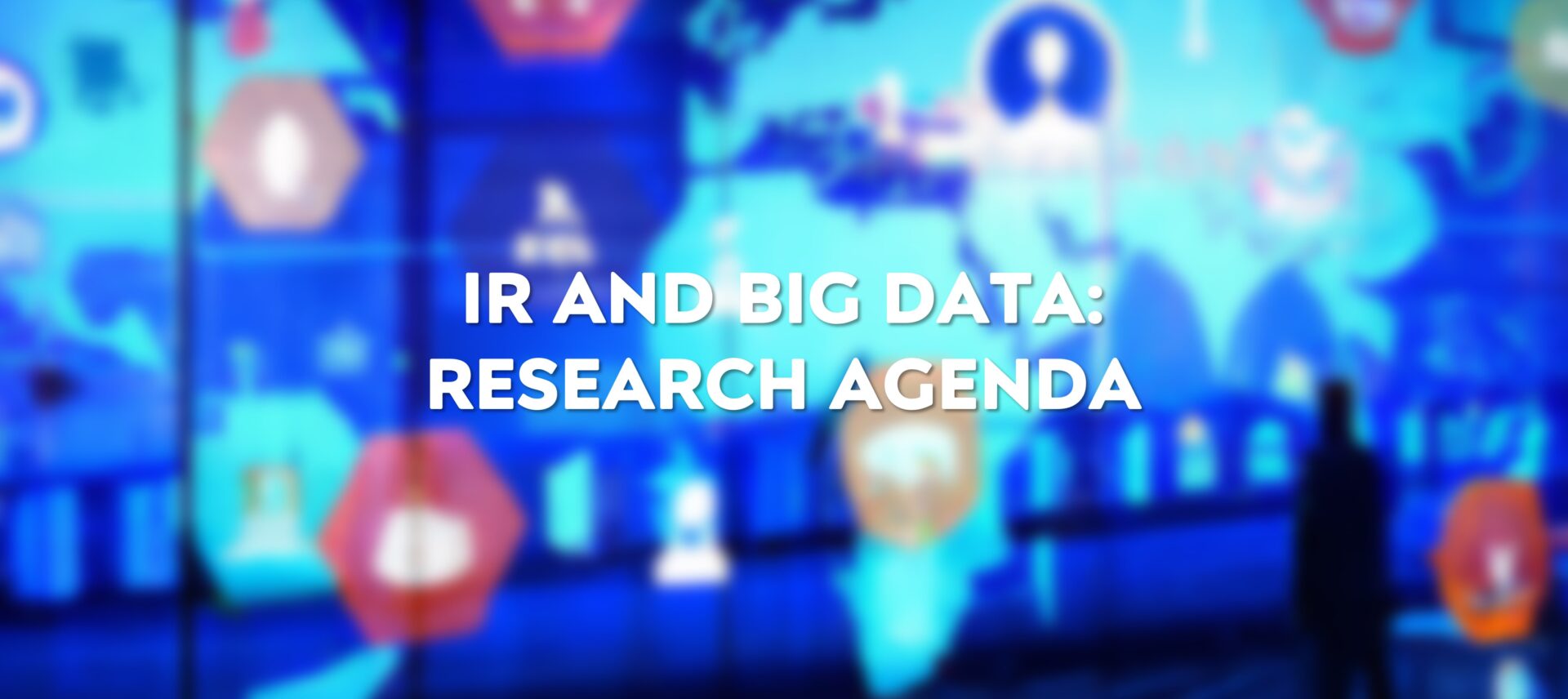Possible Research Agenda in Big Data Analysis for International Relations Study

These expanded research topics provide a broader range of possibilities for exploring the application of big data analysis in international relations, covering the fields of security studies, international political economy, and media and communication studies. Researchers can choose from these topics or use them as inspiration to develop their own research questions and objectives.
Security Studies:
- Predictive analysis of terrorism trends using big data in different regions.
- The impact of social media data on conflict escalation and de-escalation.
- Analyzing patterns of cyber warfare and cybersecurity threats using big data.
- Examining the role of big data in intelligence gathering and surveillance practices.
- Big data analysis for predicting state-sponsored cyberattacks and their implications on international security.
- Evaluating the effectiveness of big data analytics in identifying and countering transnational organized crime networks.
- Analyzing the role of big data in monitoring and predicting weapons proliferation and arms control violations.
- Exploring the use of big data in assessing the effectiveness of international peacekeeping missions.
- Investigating the impact of big data analysis on border security and migration patterns.
- Assessing the role of big data in identifying and analyzing emerging non-state security threats.
International Political Economy:
- Understanding the impact of trade data and economic indicators on global economic relations.
- Examining the role of big data in forecasting currency exchange rates and financial market fluctuations.
- Analyzing the influence of social media and big data on public opinion towards globalization and free trade.
- Studying the relationship between big data analysis and foreign direct investment patterns.
- Investigating the use of big data in tracking illicit financial flows and money laundering in global economies.
- Exploring the impact of big data on economic inequality and its implications for international relations.
- Analyzing the role of big data in evaluating the effectiveness of international development aid and programs.
- Examining the influence of big data on global supply chains and trade networks.
- Investigating the role of big data analysis in assessing the impact of economic sanctions on targeted countries.
- Analyzing the use of big data in understanding the global distribution of wealth and income disparities.
- Examining the impact of big data analytics on international energy markets and policies.
- Exploring the role of big data in understanding economic interdependence and its effects on international relations.
- Analyzing the influence of big data on international financial institutions and their decision-making processes.
- Investigating the role of big data in predicting economic crises and financial instability at the global level.
- Examining the impact of big data analysis on international trade negotiations and agreements.
Media Field:
- Analyzing social media sentiment analysis and its impact on public diplomacy efforts.
- Understanding the role of big data in shaping media coverage and narratives in international crises.
- Examining the use of big data in tracking and analyzing propaganda and disinformation campaigns.
- Investigating the influence of big data analytics on media consumption patterns and news consumption habits.
- Analyzing the impact of social media data on international media organizations’ decision-making processes.
- Studying the role of big data in understanding media bias and its implications for international relations.
- Analyzing the use of big data in assessing the impact of media censorship and surveillance on freedom of expression.
- Investigating the role of big data in analyzing public opinion on international conflicts and diplomatic efforts.
- Examining the influence of big data on media framing and agenda-setting in international news coverage.
- Analyzing the use of big data in understanding global public opinion on humanitarian crises and interventions.
- Investigating the impact of big data analysis on media strategies for public diplomacy and soft power projection.
- Exploring the role of big data in measuring media influence and public engagement in international relations.
- Analyzing the use of big data in tracking media coverage of international human rights violations and accountability efforts.
- Investigating the role of big data analytics in assessing the impact of media ownership concentration on global news coverage.
- Examining the influence of big data on media business models and revenue streams in the international media industry.
